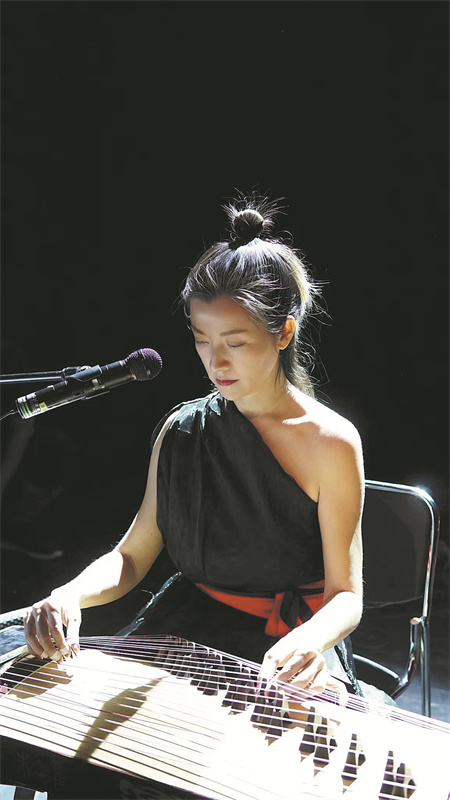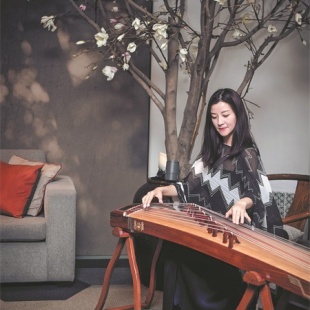Musician mixes tradition in combining East and West
Ancient Chinese instrument revives classical French pieces, Chen Nan reports.


"It was raining all day and I tried to close the window to avoid noise when I recorded the pieces. But I couldn't help listening to the rain and I opened the window, letting it be a part of the recording," says Chang. "I also recorded the natural sounds, like birds chirping and the people passing by my window, which was a totally different 'universe' compared to a professional recording studio. I rarely record that way, which was very interesting and enriched my music performance."
This recording not only adds a sense of authenticity and immediacy but also expands the sonic palette of the guzheng, transforming it into a medium for capturing the essence of urban and natural environments.
She adds that the fresh experience of recording reminded her of a trip over 20 years ago when she toured Europe with a jazz band. She stayed in the home of one of the jazz musicians where they recorded together.
"When the jazz musician's cat ran around the room, I expected him to take the cat out. However, he let the cat play in the room and told me that it was part of his music," recalls Chang. "For musicians, keeping an open heart is very inspiring."
"Her interpretations not only pay homage to the original compositions but also imbue them with a distinctive Eastern sensibility, creating a transcendent auditory experience," says Zhang Di, a musician specializing in playing the traditional Chinese musical instruments flute and xiao (a vertical bamboo flute), who worked with Chang on her new album. "We want to encourage a broader appreciation for both Chinese and Western musical traditions, enriching the global musical landscape."
Born in Chengdu, capital of Sichuan province, Chang began studying the guzheng at the age of 8. She later graduated from China Conservatory of Music and became a performer with the China Oriental Performing Arts Group.
With a long history tracing back to the Warring States Period (475-221 BC), the guzheng has evolved into a symbol of Chinese cultural heritage and an artistic expression of Chinese music.
Its 21 strings, delicately plucked by the musician's fingertips, produce a range of tones that evoke the serene landscapes and profound philosophies of Chinese tradition. Chang has elevated the instrument to new heights through her innovative approach and technical prowess.
Though she is best known for her performance of the classic Chinese music piece The Moon Over the River on a Spring Night at the opening ceremony of the Beijing Summer Olympics in 2008, she is more often seen playing the guzheng in unconventional ways and has been keen on experimenting with new sounds on the instrument.
She recorded for films such as Zhang Yimou's The Love of the Hawthorn Tree and Wong Kar-wai's Ashes of Time, and in 2010, she founded an ensemble that consisted of both the guzheng and Western instruments, like the violin and piano.





































